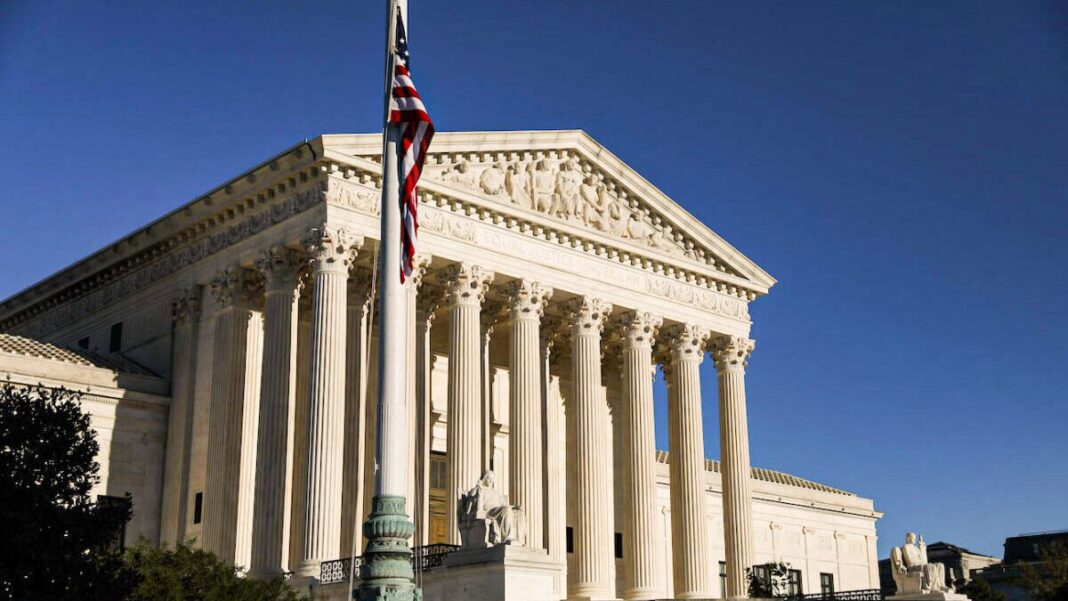The DOJ is asking the Supreme Court to limit the current injunction from a lower court to 10 states and only to those changes related to gender identity.
The Department of Justice (DOJ) filed an emergency application on July 22 asking the Supreme Court to allow some parts of the changes the federal government made to Title IX rules related to sex discrimination, which were blocked by a lower court.
The DOJ is arguing that the wholesale pause to the rule changes was “more burdensome” than necessary, asking the Supreme Court to limit the district court’s injunction to 10 states and to only those changes related to gender identity.
In the emergency application, U.S. Solicitor General Elizabeth Prelogar argued that the more than two dozen states challenging the expansion of Title IX rules focused their objections on three provisions related to “gender identity,” leaving the vast majority of the Department of Education’s (DOE’s) expanded rules alone.
In April, the DOE issued guidance changing the scope of Title IX rules for educational institutions that receive federal funds. Title IX rules, which prohibit sex discrimination in schools, were expanded to include sexual orientation and “gender identity.”
The rule changes would mean that male students who identify as female could use women’s restrooms and spaces and join women-only organizations.
It would also expand the definition of “harassment” to include using a pronoun that aligns with sex at birth but conflicts with chosen gender identity. Schools that receive federal funding but refuse to comply risk losing that funding and facing lawsuits.
The expansion of the rules also included changes to recordkeeping requirements, grievance procedures, and protections for pregnant and postpartum students and employees. However, the changes at the heart of the lawsuits filed by Republican-led states and other groups related to the three provisions on gender identity.
On June 17, a federal district court in Kentucky blocked the new regulations in several Republican-led states while lawsuits were ongoing.







